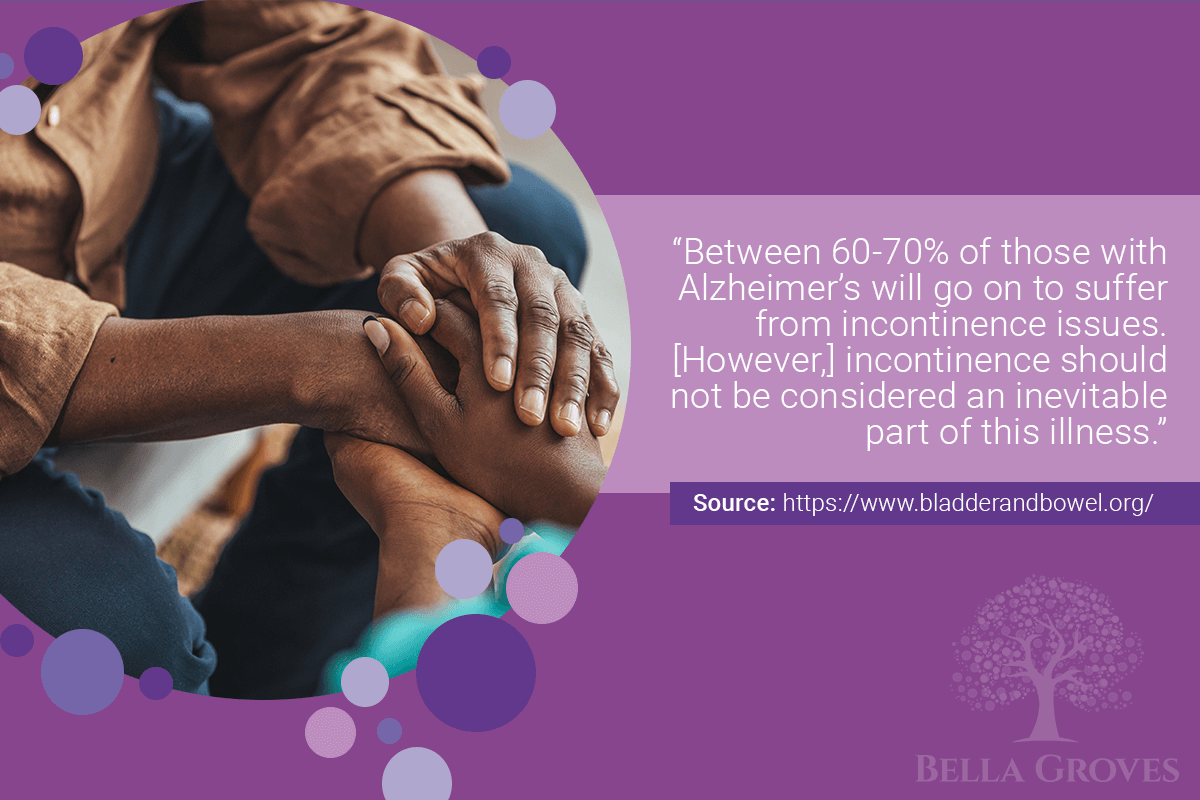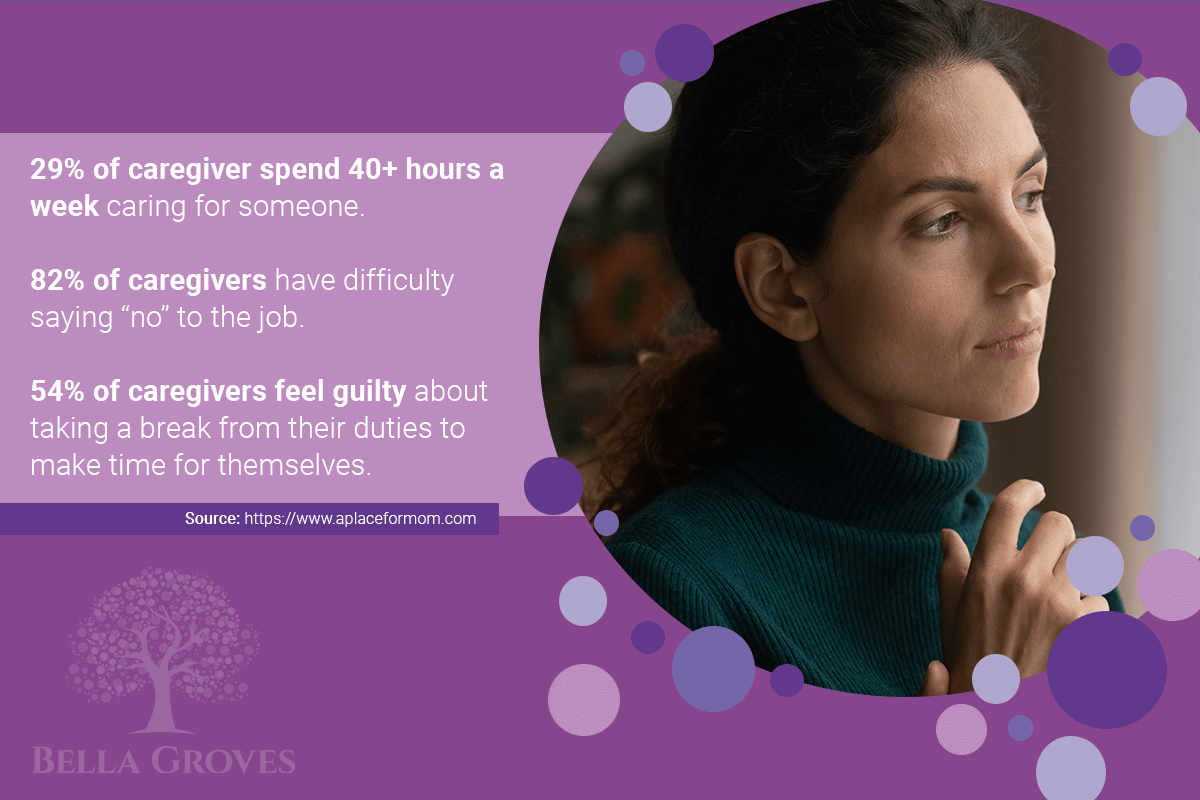
Dementia Care: Management Tips for Incontinence
As dementia progresses, it starts to impact a person’s daily life and independence. Cognitive decline – the loss of thinking, remembering, and reasoning – is the most well-known symptom of dementia that many associate with memories or communication. However, as dementia reaches later stages, a person may also lose the ability to complete basic daily tasks, including maintaining continence.
As a person’s condition progresses, incontinence can cause a series of problems; embarrassment, frustration, and health concerns.
At Bella Groves, part of our mission is to educate individuals, care partners, and families on dementia care. Below, our team provides education on how dementia can impact a person’s continence and tips for managing incontinence as a dementia care partner.
Understanding How Dementia Impacts Continence
Dementia can cause sensory changes or impact a person’s ability to recognize cues. For example, a person living with dementia might not recognize that they have the urge to urinate.
Other reasons for incontinence could include the lack of recognition of bathrooms due to confusion, especially if the person is in a new environment. Changes to mobility and communication issues can also impact one’s ability to get to a bathroom in time. For instance, not being able to properly communicate to a care partner that they need to use the restroom.
Understanding how dementia impacts a person’s continence promotes empathy. “Bladder and bowel accidents can be embarrassing. Find ways to preserve dignity. For example, say, “Anyone can have an accident,” instead of saying, “You wet yourself.”(alz.org).”
Managing Incontinence as a Care Partner
Maintaining bladder health is key when managing incontinence. As a dementia care partner, to help combat incontinence, limit fluid intake before bed. In addition, cut down on drinks that stimulate urination, such as cola, coffee, or tea.
Identify when accidents occur. For instance, if they happen every two hours, get the person to the bathroom before that time. “Try setting a regular schedule for toilet use. For example, help the person to the bathroom first thing in the morning, every two hours during the day, immediately after meals, and just before bedtime (alz.org).”
In addition, if your loved one regularly wears pads or undergarments to avoid accidents, ensure the skin is kept clean. When regularly exposed to moisture, many skin infections can occur, like yeast or bacterial infections, which can worsen incontinence.
How to Reduce Accidents: At Home
In many instances, timing is key for managing incontinence. “Watch for nonverbal cues, such as restlessness, making unusual sounds or faces, pacing, sudden silence, or hiding in corners. These cues may indicate the need to use the toilet. Use adult words rather than baby talk to refer to using the toilet…Some people do well when they are reminded to go to the bathroom on a regular schedule, perhaps every two hours (alz.org).”
Remove any obstacles blocking the toilet or bathroom, such as furniture or bathroom accessories that could be confusing, and keep the door to the bathroom open, so the toilet is easily visible.
If necessary, install the appropriate assistance tools, like grab bars next to the toilet. Be sure that the toilet is at an accessible level, and replace any dim lights with brighter bulbs to make everything easier to see.
In addition, consider installing a portable toilet chair next to their bed at night, in case they wake up and cannot reach the bathroom in time, and remove any wastebaskets or items that could be mistaken for a toilet.
How to Reduce Accidents: In Public Areas
Planning is key to reducing accidents in public areas. Again, be mindful of their regular bathroom routine and make sure a bathroom is accessible. For example, if you and your loved one are at a restaurant, ask to be seated as close as possible to the restroom for easier accessibility.
At Bella Groves, we want to help you every step of the way. Dementia is difficult, and managing incontinence is not something many dementia care providers talk about, but it’s a part of the caregiving journey.
If you’re seeking support or have questions about your dementia care journey, we invite you to call us at (830) 323-0440 or email us at hello@bellagroves.com.


